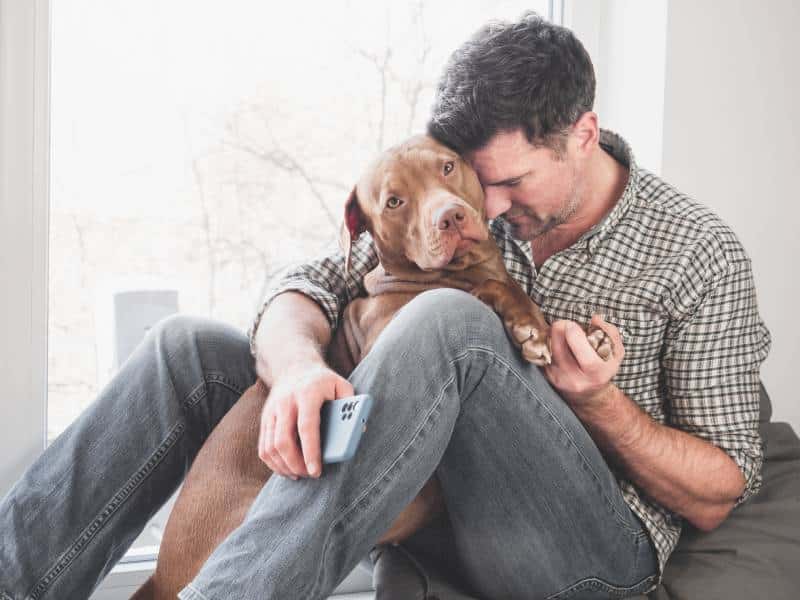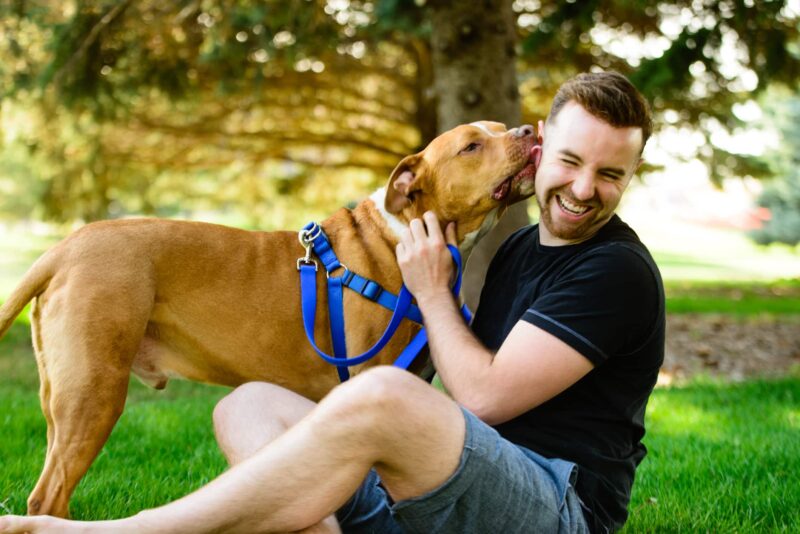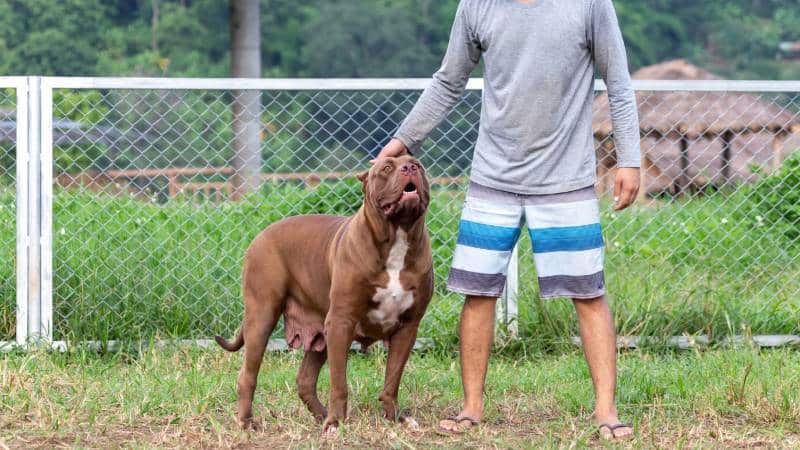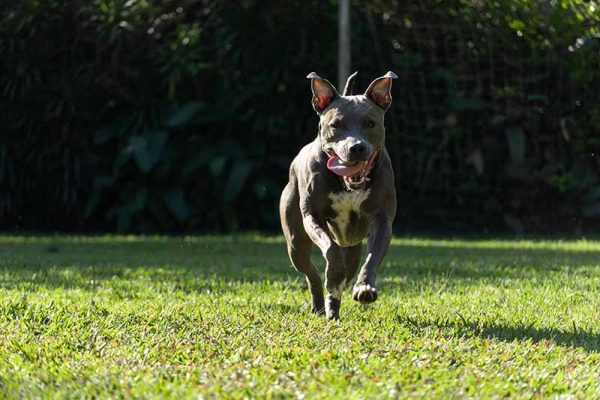In this article
View 3 More +There are many people who love Pit Bulls. Pit Bulls often get a bad reputation in the general population, but their defenders say that many of these rumors and criticisms are incorrect and factually wrong. This has led some people to wonder if Pit Bulls are cut out to be therapy dogs. Ardent defenders will say yes, and skeptics will say no. But who is correct? Can Pit Bulls be therapy dogs? The answer to that question is yes. Pit Bulls can be therapy dogs. However, there are some important caveats to that answer that need to be understood to get a glimpse of the full picture.

Pit Bulls Can Be Therapy Dogs
Pit Bulls can absolutely be therapy dogs. In fact, almost any breed can be a therapy dog. Therapy dogs have fewer requirements, restrictions, and oversight than service dogs. That means that well-trained Pit Bulls can become therapy dogs. However, there are some considerations to keep in mind when considering using a Pit Bull as a therapy dog, and they will still need to undergo extensive training to ensure that they are calm and well-behaved while in public environments.
There is nothing about therapy dog training that will disqualify all Pit Bulls from completing it. Despite the fact that any breed can technically become a therapy dog, not every individual dog is cut out for the job. That is also true for Pit Bulls. While Pit Bulls can absolutely be therapy dogs, not every Pit Bull will be able to become a therapy dog.

Therapy Dogs vs. Service Dogs
There is some lingering confusion about therapy dogs versus service dogs. Unlike service dogs or emotional support animals, therapy dogs fulfill a unique supportive role. They are not assigned to a specific individual for constant companionship. Instead, these dogs offer their services on a volunteer basis in various therapeutic settings. Such environments can include places like hospitals and mental health facilities, hospices, educational institutions, and long-term care facilities. Their mission is to bring solace and warmth to the individuals they meet in a variety of different settings. Therapy dogs undergo training to adapt to new surroundings and engage positively with a variety of individuals.
Service dogs are trained for a specific job and are typically paired with an individual for many years. Service dogs live with their host and spend all of their time helping a single individual. Service dogs include things like seeing eye dogs, seizure warning dogs, and dogs for the hearing impaired. In many cases, Pit Bulls cannot be service dogs. Service dogs have more rigid requirements, and many services use one or two specific breeds to complete the task.
Therapy dogs are more general and typically work with groups or different individuals. Service dogs have a much different routine and lifestyle than therapy dogs, which is not always suitable for Pit Bulls.


Desirable Traits for a Pit Bull Therapy Dogs
Pit Bulls with these traits can easily be trained to become therapy dogs.
- Easygoing
- Low prey drive
- Predictable
- Sweet
- Trainable
- Calm
- Loves people
- Likes getting out of the house
If a Pit Bull does not exhibit most (if not all) of these traits, then they will not be cut out to become therapy dogs. Therapy dog training programs have strong weed-out phases that will help remove dogs that are unsuitable for the job before they get too deep into the training. Evaluators will look for these traits in any potential therapy dog to ensure that they can complete the training and do the job required.
What to Be Wary of With Pit Bull Therapy Dogs
Pit Bulls have a couple of traits that you need to be aware of that can disqualify them from being good therapy dogs. The first is a Pit Bull’s prey drive. Since they are a terrier breed that was bred to hunt and kill animals such as rats, many Pit Bulls have very strong prey drives, which can cause them to lose focus on specific tasks in a very short amount of time. Many Pit Bulls will run off after squirrels, and they can become cagey around strangers or children. This can make some Pit Bulls unpredictable, which is a trait that will disqualify them from being a therapy dog. Prey drive is largely instinctual and can be difficult to train out of a dog.
The other thing to be wary of is the fact that many Pit Bulls can be prone to anxiety, which can make them hard to work with in public, around strangers, or in large groups. A Pit Bull with anxiety cannot be a good therapy dog as therapy dogs typically work in strange and unfamiliar environments, which can trigger underlying anxiety.
Unfortunately, most Pit Bulls will exhibit signs of either anxiety or a strong prey drive, which will make it difficult for them to complete therapy dog training. There are still plenty of Pit Bulls that can succeed, but many will also fail because of their natural and inherent inclinations, at no fault of the dog’s.


Conclusion
Pit Bulls can be therapy dogs, but not every Pit Bull will be cut out for the job. Pit Bulls likely cannot be niche service dogs, but they can be trained to provide therapy to groups and individuals looking for comfort from a dog. Pit Bulls can exhibit the necessary traits such as affection for people, a calm disposition, and predictable behavior. However, Pit Bulls can also exhibit negative traits such as a strong prey drive, unpredictable behavior, and anxiety. Pit Bulls as a whole can make good therapy dogs but not every individual Pit Bull will be able to make it through the necessary training.
Featured Image Credit: Nata Bene, Shutterstock






















